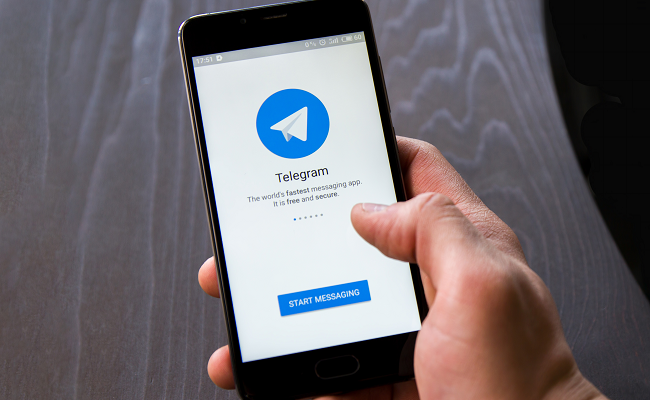Telegram starts to look like a super app – Telegram, popularity is well proven by its over 800 million active monthly users worldwide. The messaging app is getting closer to adopting an ecosystem strategy akin to WeChat’s super app approach. With the assistance of two titans, Tencent, the owner of WeChat, and Telegram’s crypto partner TON Foundation, some components of the ecosystem will become decentralized.
Telegram has been developing on a platform where third-party and independent developers may create mini apps to connect with users, from restaurants to games. According to Telegram, “Developers can use JavaScript to create infinitely flexible interfaces that can be launched right inside Telegram — and can completely replace any website.”
Telegram relies on a network of infrastructure partners from both the conventional tech sector and the cryptocurrency realm to develop this super app platform. One of these is The Open Network (TON) Foundation, which established the blockchain foundation for Telegram while still functioning as an independent and separate organization.
Also see: In India WhatsApp users can now pay companies using credit cards and other UPI apps
The TON Foundation announced this week that it has partnered with Tencent Cloud, which has “already successfully supported TON validators and plans to expand its services further to help meet TON’s high compute intensity and network bandwidth needs.” Participants who aid in the authentication of transactions in a blockchain network are known as validators in web3 jargon.
“For example, Telegram games built on TON can benefit from Tencent Cloud’s enriched gaming solution and reference cases,” the announcement says. “For all projects built on TON, Tencent Cloud will offer, subject to approval, a dedicated amount of cloud credits and product discounts, made available through the Tencent Cloud Startup Program.”
Tencent has increased its efforts to expand internationally as the tech industry in China experiences sluggish growth. Its cloud computing company has recently started to show up at industry events, such as cryptocurrency conferences. In the event that Telegram’s mini-app marketplace gains traction similar to its Chinese version, Tencent may stand to gain significantly from the collaboration.
Also see: Google DeepMind AI Tool Predicts Whether Genetic Mutations Will Be Harmful
The tiny app paradigm was invented by WeChat in China, and it currently powers millions of them that do tasks like payments, food delivery, e-commerce, ride-hailing, and license renewal, to mention a few. Telegram’s small app ecosystem might potentially reach a wider range of users globally with a decentralized payments network.
Taking a leave from WeChat’s playbook
According to reports, Tencent Cloud won’t be TON’s only cloud provider, but it appears that the partners will benefit from their synergies.
Given the similarities between WeChat mini-applications and Telegram mini-apps, Justin Hyun, head of growth at TON Foundation, “Given the similarities between WeChat mini apps and Telegram mini apps, we believe that mini app developers from WeChat who are currently using Tencent’s cloud service will begin to build on TON,”
It’s not clear how many developers catering to WeChat’s Chinese user base are able to meet the wide range of demands of Telegram’s global user base. Given that many of them are currently promoting their games in foreign markets, mobile game developers may have the most transferable talents. Many developers will need to become familiar with Telegram because it is restricted in China before they can create useful applications for the network.
Additionally, the developers would have to become familiar with the blockchain-specific programming languages, which may prove to be less of a challenge than comprehending the financial incentives that support decentralized applications.
However, a relationship with Tencent might provide guidance on how to persuade users to utilize a messenger for a variety of other things. Importantly, WeChat’s early success was greatly aided by its payment features, which created a habit among users to conduct daily transactions using the chat service.
WeChat has become a cash cow for Tencent by making its in-house payment system the default choice, but Telegram has connected with 20 payment options and charges no fees through its Bot Payments API. A self-custodial wallet that is independently created by The Open Platform (TOP) using the TON blockchain was recently embraced by Telegram in addition to more established options like Google Pay or Apple Pay. In areas without centralized internet payments, having a crypto wallet may open up a wide range of transaction possibilities.
It would be interesting to see how a micro app ecosystem with a decentralized twist develops and what WeChat’s lessons are for Telegram and TON.


















